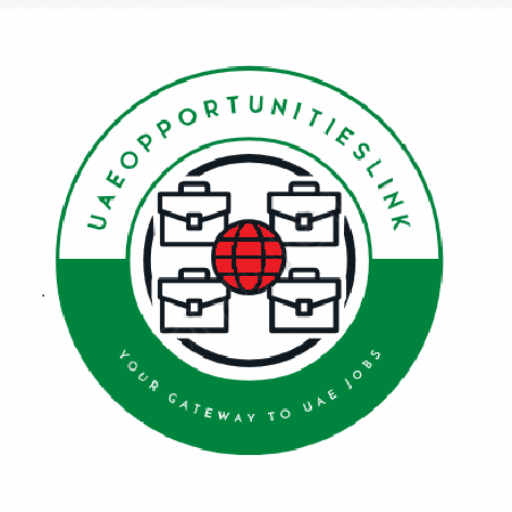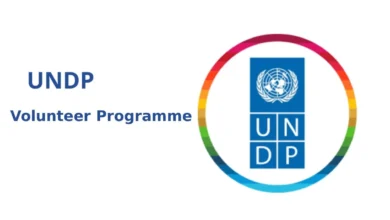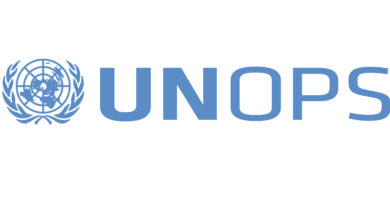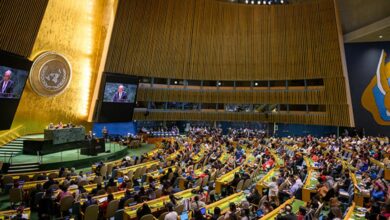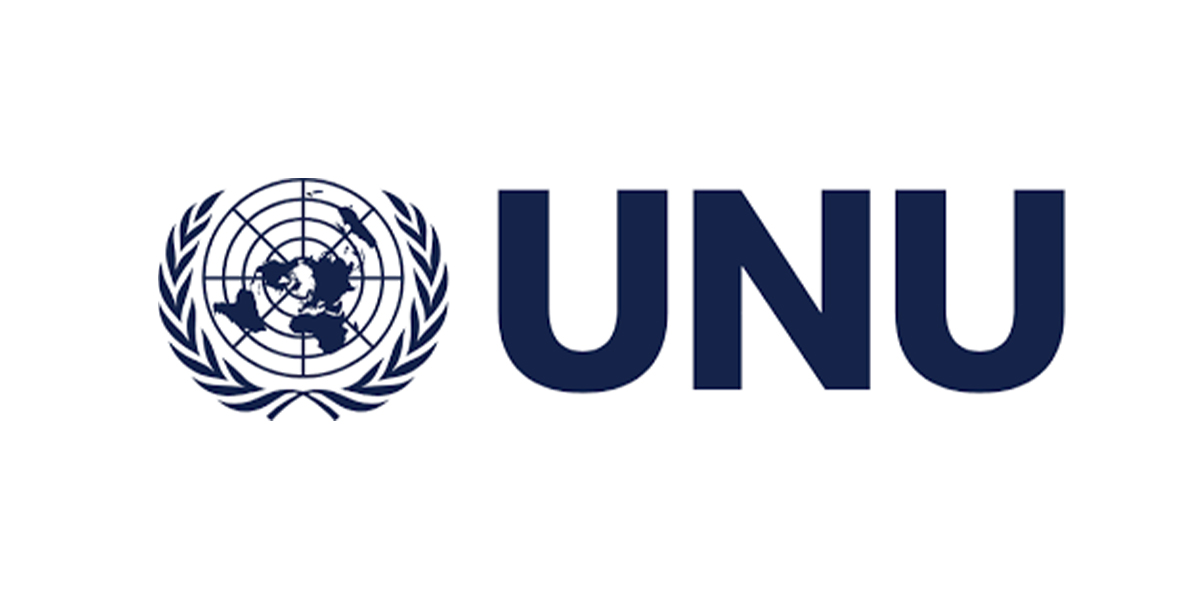
Driving Global Policy Impact Through Research: Apply For The Role Of A Research Associate At The United Nations University (UNU) 2025
The United Nations University (UNU) is a distinctive element within the United Nations system: a global think tank and postgraduate research teaching organisation that targets pressing global challenges. As the job posting makes clear, UNU “engages in policy-relevant research, capacity development, and knowledge dissemination in furtherance of the purposes and principles of the United Nations.”
With dozens of institutes and programmes across more than a dozen countries, UNU spans topics from sustainability, human security and economic development essentially aligned with the full spectrum of the 17 Sustainable Development Goals (SDGs).
The current vacancy is for a Research Associate (PSA-3) in the Institute for Environment and Human Security (UNU-EHS) in Bonn, Germany, within its Urban Futures & Sustainability Transformation (FAST) division. What makes this role interesting is its focus: bringing quantitative and statistical methods into urban sustainability transformation research especially as it intersects risk, adaptation, governance, and resilience.
This article will unpack the job’s context, responsibilities, qualifications, competencies, the institutional environment, and offer thoughts on how to position oneself for such an opportunity.
UNU-EHS: The Host Institution
The Institute for Environment and Human Security (UNU-EHS) was established in 2003 in Bonn, Germany. Its mandate is to advance human security and well-being by tackling risks that stem from environmental hazards and climate change. In other words, it’s a research centre that sits at the intersection of environment, hazards, risk governance and sustainability.
Within UNU-EHS, the FAST (Urban Futures & Sustainability Transformation) division is the home for this job. The FAST division “researches systemic transformation toward sustainability to inform and enhance policy.”
Some of the core ideas for FAST:
- Understand urban systems (social, environmental, technological sub-systems) and their interlinkages.
- Seek leverage points that trigger change, because sustainable futures are not just about technology but also about social and environmental justice.
- Focus on urban areas which are both drivers of and vulnerable to global change.
- Engage in cross-division projects, for example linking to projects such as SAFER-BiH (flood and earthquake risk governance in Bosnia and Herzegovina).
In summary: the environment is intellectually rich, policy-oriented, and interdisciplinary. Someone applying to this role steps into a collaborative, globally connected research institute that seeks both academic and actionable output.
ALSO READ: Databricks Software Engineering Internship 2026 In Amsterdam: Build The Future Of Data & AI
Position Overview: Research Associate (PSA-3)
The position is labeled “Research Associate (PSA-3)”, on-site (Bonn, Germany) within UNU-EHS/FAST. (United Nations University) The contract type is a “Personnel Service Agreement (PSA)” for an initial one-year term, renewable subject to performance, with a combined maximum of six years in such roles at UNU.
The successful candidate will report to the Head of the FAST Programme and operate under the authority of the Director of UNU-EHS.
Duty station: Bonn, Germany; no relocation allowance; visa support for the successful candidate.
Start date: as soon as possible. Application deadline: 25 November 2025.
Thus, the role is project-based but embedded in an institutional environment of long-term sustainability research and policy engagement. The candidate is expected to contribute to transformative research on urban sustainability and risk governance.
Key Responsibilities
Let’s examine in detail the core responsibilities described in the posting:
1. Contribution to transformation research, theory and policy development
- Support the development of UNU-EHS and FAST’s strategic approach to urban sustainability transformation, specifically in quantitative and statistical analysis methods.
- Contribute to theory and policy development by linking urban transformation research to other conceptual and empirical approaches (e.g., climate change adaptation & mitigation, risk reduction, resilience building).
- Conduct desk reviews and analyses, including data collection from scientific and grey literature.
These tasks emphasise bridging theory and practice, using quantitative/statistical skills, engaging with literature and knowledge synthesis, and contributing strategically to the division’s research agenda. The ability to frame research questions and link them to policy/practice is integral.
2. Contribution to the SAFER-BiH project on actionable risk governance
- Support the co-creation of risk knowledge and the development of a spatial risk index for floods and earthquakes under the SAFER-BiH project (in Bosnia & Herzegovina). Tasks include conceptual framework design, risk indicator development, and risk index creation.
- Assist in data collection from diverse sources, conduct basic statistical analysis, and report data gaps to senior staff.
- Support development of assessments to capture linkages among risk drivers and spatial risk variation.
- Contribute to capacity building and training activities within the project.
This set of responsibilities highlights that the candidate will work on a concrete project (SAFER-BiH) that involves spatial risk analysis, index development, statistical work, cross-disciplinary linkages, capacity building, and training. It is not purely desk work there is an applied, context-specific project with tangible outputs and regional scope.
3. Co-authoring project outputs and outreach
- Assist in preparing scientific and policy publications under senior staff guidance.
- Support preparation of materials for presenting results at scientific and policy-relevant conferences.
- Assist in developing capacity-building materials for diverse audiences.
- Support scaling of project results particularly methodological approaches to regional and global scales.
- Contribute to organising project-related events, including workshops and conference sessions.
In short: the role involves collaborating on publications, outreach, event organisation, training development, and scaling insights beyond the immediate project.
4. Proposal writing and strategic engagement
- Provide administrative and logistical support to senior staff in identifying and pursuing funding opportunities from a wide array of donors (government agencies, foundations, corporations, UN agencies etc.)
- Contribute to proposal development partner/donor liaison, drafting and revisions.
This responsibility emphasises that the role is not solely research; it also includes strategic and operational tasks related to funding acquisition, partner engagement, and supporting the institute’s growth and sustainability.
5. Other duties as assigned
- The posting includes a catch-all: “Perform other duties as assigned by supervisor.”
ALSO READ: UNESCO Bamako Hiring Non-Staff Consultant For Cultural Evaluation Project (40-Day Assignment)

Key Performance Indicators (KPIs)
The posting identifies KPIs that the incumbent will be expected to meet:
- Timely and quality collection and analysis of relevant primary and secondary data.
- Timely and quality achievement of project objectives and submission of deliverables.
- Meaningful contribution to project objectives, institute priorities and UNU mission.
- Strengthened recognition of UNU as a reliable and trustworthy partner among research partners, governments, donors and civil society.
So overall, this is a role that expects a combination of research rigour, applied orientation, strategic thinking, and engagement.
Competencies & Values
The posting sets out a clear set of institutional values and behavioural competencies that candidates must share and demonstrate. These go beyond technical or academic qualifications.
Values
- Inclusion: Taking action to create an environment of dignity and respect for all, regardless of age, culture, disability, ethnicity, gender, gender identity/expression, geography, grade, language, nationality, racial identity, religion, sex characteristics, sexual orientation, social origin or any other aspect of identity.
- Integrity: Acting ethically, in line with UN standards, and taking prompt action in case of witnessing unprofessional or unethical behaviour.
- Humility: Demonstrating self-awareness and willingness to learn from others.
- Humanity: Acting according to the purposes of the United Nations: peace, dignity and equality on a healthy planet.
These values reflect the broader mission of the UN system and set a tone: the individual is not only a researcher but a contributor to a human-centred global agenda.
Behaviours
- Connect & Collaborate: Build positive relationships with others to advance the work of the United Nations and work coherently as “One UN”.
- Analyse & Plan: Seek and use data from a wide range of sources, understand problems, inform decisions, propose evidence-based solutions, plan action.
- Deliver Results with Positive Impact: Hold self and others accountable for delivering results and making a positive difference to people and causes served by the UN. (United Nations University)
- Learn & Develop: Pursue own learning and development, and contribute to the learning of others.
- Adapt & Innovate: Show flexibility, agility, and ability to think and act in novel ways.
These behavioural competencies emphasise not just what you do, but how you do it. They are critical in research roles bridging academia, policy, and practice.
Qualifications Required
The posting lists clear requirements with a breakdown into education, experience, language and other desirable skills.
Education and Certification
- Master’s degree (with high academic standing) in Geography, Environmental Science, Disaster Risk Management, or other relevant fields.
Experience
- Minimum one (1) year of progressively responsible experience in risk assessment, including index-based approaches and conceptual risk models.
- Strong methodological skill-set in statistical analysis, data management and quantitative analysis is required; experience with indicator frameworks and indexes is an asset.
- Proven strong experience in interdisciplinary and mixed-method research is essential; experience in transdisciplinary projects is an asset.
- Experience in project proposal development is an asset.
- Knowledge of transformation/transition research, climate adaptation & mitigation, and/or resilience framework is desirable.
- Excellent communication and writing skills for both academic and non-academic audiences.
- Other desirable skills: team player with strong interpersonal skills, initiative seeker, strong conceptual and drafting ability, interest in interdisciplinary and international work.
Language Requirements
- Fluency in English and German (oral and written) is required.
- Working level knowledge of Spanish or Portuguese is desirable.
- Knowledge of another UN official working language is an asset.
Remuneration & Contract
- Employed under a national PSA contract. Compensation package offered including annual net salary, 30 days annual leave, health insurance.
- Note: UNU is not liable for any taxes levied on the remuneration under the contract—tax responsibility is on the PSA holder.
- Duration of initial contract: 1 year, renewable, up to maximum combined duration of six years in PSA contracts with UNU. Mandatory retirement age is 65.
- “This post is open to applicants from all countries and UNU will aid the successful applicant in securing a work visa for Germany, as necessary. It is, however, a locally recruited post and no relocation allowances apply.”
Application Process
- Applicants fill out the UNU P11 form (not other UN forms) and provide a motivation statement, cover letter outlining how qualifications/experience match requirements.
- Applicants answer tailored questions (see the listing for details).
- Deadline: 25 November 2025 (submissions must be received by 00:00 CET).
- Evaluation may include assessment exercise, competency-based interview, background checks, references.
- Special notice: PSA holders are neither “staff members” under UN Staff Regulations nor “officials” under the Convention on Privileges & Immunities of the UN. The Rector may appoint a candidate at a level below that advertised.
- UNU emphasises diversity and inclusion; internal and external candidates encouraged; zero tolerance for misconduct.
What the Role Offers and What it Demands
The Offer
- The opportunity to work at a prominent global research institute within the UN system, with policy-relevant work on urban sustainability, risk and transformation.
- A role in a cross-disciplinary environment, engaging quantitative methods, spatial risk indices, capacity building, and strategic research frameworks.
- Exposure to international projects (e.g., SAFER-BiH) that tackle real-world problems (floods, earthquakes, risk governance) in urban and regional contexts.
- The chance to collaborate on publications, outreach, event organisation and proposal development.
- The location: Bonn, Germany a hub for UN and sustainable development organisations.
- A contract that potentially leads to up to six years in a PSA framework, allowing meaningful experience and development.
The Demands
- The candidate must be fluent in both English and German this is non-negotiable. That requirement narrows the applicant pool.
- The role demands quantitative/statistical ability (data management, indicator frameworks, indexes) plus evidence of interdisciplinary or mixed-method research.
- The one-year minimum experience requirement is modest but within the UN context, often a modest experience requirement still translates into strong competition.
- The role involves not just research but administrative/logistical tasks (funding proposals, donor liaison) and event/ workshop organisation someone who is purely a “lab researcher” may struggle.
- It is a local contract (no relocation allowance) so applicants must consider cost of living, visa logistics, and personal relocation plans.
- The PSA contract status implies the role is not a “staff member” role under UN regulations this may have implications for long-term career progression and benefits relative to standard UN staff posts.
- The requirement to support donor liaison, capacity building, and scaling of project results suggests the candidate must have both technical depth and organisational acumen.
Why This Role Matters and for Whom
Relevance and Significance
Urban areas are at the forefront of sustainable development challenges: they are centres of population growth, infrastructure demand, environmental risk, and governance complexity. The FAST division of UNU-EHS emphasises that “urban areas … already see the effects of global change and are among its key drivers at the same time.”
Working in a role that synthesises urban sustainability, risk governance (floods, earthquakes), adaptation/mitigation, and quantitative methods offers a rare blend of theoretical and applied dimensions. The candidate will contribute to frameworks and indices that can influence policy, governance approaches, capacity building, and coherent urban sustainability transformation.
In addition, the broader agenda of UNU spans the 17 SDGs, meaning this role engages with one of the major global frameworks for sustainable development. The fact that the posting emphasises “transformation research” underscores that the institute is not just documenting change, but seeking to understand and steer systemic change. This aligns with contemporary thinking: systems thinking, leverage points, socio-technical transitions, resilience frameworks, and just transitions.

Who Should Apply
Ideal candidates would include:
- Early-career researchers (perhaps 1-3 years’ experience) with a Master’s degree (ideally in Geography, Environmental Science, Disaster Risk Management, or a related quantitative discipline).
- Individuals with strong quantitative/statistical skills, familiar with data management, indicator development, index frameworks, spatial analysis.
- Researchers with interdisciplinary or mixed-method experience (qualitative + quantitative) and interest in transdisciplinary, global research.
- People who are comfortable working in English and German, ideally with additional languages (Spanish/Portuguese or other UN languages) as a plus.
- Candidates who are motivated by applied research: linking theory to policy, co-creating frameworks with stakeholders, capacity building, and outreach.
- Applicants who are proactive, adaptable, team-oriented, and comfortable with a blend of research, outreach and admin/strategic tasks.
- Individuals willing to relocate to Bonn, Germany, and work under a PSA contract (not typical UN “staff” status) and who are realistic about the local contract’s terms (no relocation allowance, local German contract, visa support but other costs borne by candidate).
Potential Career Implications
For many early‐career researchers, this kind of role offers an entry into the “UN research/policy” ecosystem. Success in this role (strong publications, applied project outputs, donor proposals, international collaboration) could position someone for further roles within UNU, UN agencies, multilateral research institutions, or NGOs focusing on urban sustainability, risk governance, adaptation & resilience.
However, because it is a PSA contract (and not UN staff), candidates should consider their long-term career path: what will follow after the contract ends, what development/training is available, whether the role provides the networking and visibility that open doors for subsequent roles.
Tips for Applicants
Understand and Reflect the Institutional Values
- The posting emphasises inclusion, integrity, humility and humanity. In a cover letter or motivation statement, reflect how your experience aligns with these values (e.g., describe working in diverse teams, showing respect and dignity in collaborations, ethical conduct, willingness to learn).
- Demonstrate behaviours: connect & collaborate, analyse & plan, deliver results with positive impact, learn & develop, adapt & innovate. You might provide examples: working in a team to deliver evidence-based recommendations; analysing data from multiple sources to guide decisions; adapting methods when context changed; developing training materials and improving your own skills.
Match Technical and Thematic Requirements
- Ensure your CV and motivation statement clearly highlight: the Master’s degree (and institution, graduation date, academic standing if strong); experience in risk assessment (index-based or conceptual risk models); statistical/data management/ quantitative analysis skills (mention software/ tools used, e.g., R, Python, GIS, SPSS, Stata, MATLAB, etc).
- Highlight interdisciplinary/mixed method research experience. If you’ve worked on projects combining quantitative and qualitative methods, mention that. If you have transdisciplinary experience (academia + practitioners + community/stakeholders) that will stand out.
- If you have knowledge of transformation/transition research, climate adaptation/mitigation or resilience frameworks, make sure this is clearly conveyed. Use specific frameworks or literature if space allows.
- Language: Be sure to note your fluency in English and German (both written and spoken). If you have Spanish or Portuguese, mention it. If you know other UN working languages (Arabic, Chinese, Russian), mention that as an asset.
- For the SAFER-BiH project link: if you have any experience in spatial risk indices, hazard mapping, flood/earthquake risk governance, or capacity-building in risk contexts, highlight this. Even if you don’t, expressing an interest and showing some exposure (publication, coursework, project) will help.
- In the cover letter, tailor your discussion to the role: mention the FAST division, urban sustainability transformation, risk governance in urban contexts, and your interest in applying quantitative methods to such topics.
Application Documents
- Fill out the UNU P11 form (other UN forms may not be accepted). The posting emphasises not using similar forms provided by other United Nations organisations. (United Nations University)
- Submit a motivation statement (in the P11) and a cover letter that clearly outlines how your qualifications and experience match the requirements. (United Nations University)
- When answering the application questions (see the listing: e.g., Do you hold a Master’s degree in relevant field? Do you have one year of experience in risk assessment? Are you proficient in statistical analysis? etc.) be clear, concise, and provide evidence rather than generic statements. (United Nations University)
Deadline and Timing
- Note the application deadline: 25 November 2025 (by 00:00 CET). Late submissions will not be accepted. (United Nations University)
- If you are interested, submit well ahead of the deadline to allow for any logistical/uploading issues.
Interview & Assessment
- The candidate may face an assessment exercise (which could be technical or aptitude based), followed by a competency-based interview, background checks and references. (United Nations University)
- For the competency-based interview, prepare examples aligned with the Behavioural competencies: e.g., describe a time you collaborated across disciplines (Connect & Collaborate); how you analysed data from multiple sources to develop a recommendation (Analyse & Plan); how you adapted when a project changed direction (Adapt & Innovate); how you delivered a result that had positive impact (Deliver Results); how you learned a new methodology and applied it or helped others (Learn & Develop).
- For technical assessment, you may be tested on quantitative/statistical methods, risk indices or data analysis experience. Make sure you refresh your knowledge in those areas and have examples ready.
Relocation & Practicalities
- The duty station is Bonn, Germany. The contract is locally recruited; no relocation allowance applies. The successful candidate must make their own arrangements for travel, moving and settling in. UNU will assist with visa for Germany as necessary.
- Consider cost of living in Bonn (housing, living expenses, German language/context). While the posting does not provide salary details, making sure the net salary covers local costs and taxes is wise.
- The PSA contract means you might need to handle tax considerations; note UNU is “not liable for any taxes that may be levied on the remuneration you receive under this contract. Payment of any such taxes remains the sole responsibility of PSA holders.”
Strategic Reflection: Why Join and What to Expect
Why This Role is Strategic
- Global relevance: Urban sustainability transformation is a critical global agenda, especially as climate change, rapid urbanisation, infrastructure challenges, and governance deficits converge. Being part of the FAST division puts you at the heart of this research-policy nexus.
- Institutional credibility: UNU holds legitimacy within the UN system and global sustainability networks. Working there provides access to global partners, networks, research platforms and policy forums.
- Skill development: The role offers a mix of quantitative methods, spatial/risk analysis, index development, interdisciplinary research, outreach, capacity building and proposal development — building a versatile skill set.
- Career stepping stone: For someone early in their career, this role can be a platform for further roles in academia, policy, or international agencies. The experiences (publications, project involvement, donor engagement) make for a competitive CV.
- Applied impact: This is not purely an academic role. The SAFER-BiH project, for example, is applied, region-specific, and intended to produce actionable knowledge for flood/earthquake risk governance. Being part of such projects means your work can have real-world consequences.
What to Expect (and Prepare For)
- Multidisciplinary work: Expect to work across disciplinary boundaries — between environmental science, risk assessment, urban studies, governance, data science, and stakeholder engagement. Comfort with interdisciplinary scholarship is crucial.
- Quantitative and spatial dimension: The role emphasises quantitative/ statistical analysis and the development of risk indices (spatial risk index for floods/earthquakes). If you have GIS skills, index development, indicator frameworks, you’ll be well-positioned.
- Project-based deliverables: The responsibility list and KPIs emphasise timely and quality collection/analysis of data, meeting deliverables, contributing to institute priorities, and enhancing UNU’s credibility. Time management, deliverable-orientation and accountability matter.
- Collaborative environment: The role involves working with senior staff, co-authoring outputs, liaising with donors/partners, developing capacity building materials, organising events. Soft-skills, teamwork, communication, networking will matter.
- Proposal work and strategic engagement: Beyond research, you’ll support funding identification, partner liaison, proposal writing — tasks often found in research management/strategic units rather than pure research roles. Being comfortable with those tasks is an advantage.
- Language/communication demands: Fluency in English and German is required; other languages (Spanish/Portuguese or other UN languages) are assets. The ability to write for both academic and non-academic audiences is mandatory.
- Flexibility and adaptability: The behavioural competencies emphasise adaptability and innovation. Research contexts change, funding shifts, priorities evolve. Being agile, and willing to pivot, is important.
- Understanding contract type: As a PSA contract holder, the role has certain implications (not UN staff, no relocation allowance, tax responsibility). Be clear on the terms and consider long-term career implications (particularly if you hope for a permanent UN-type career).
Potential Challenges and How to Mitigate Them
Challenge: Competition
Even with a “minimum one year” experience threshold, such roles attract strong candidates globally.
Mitigation: Emphasise unique aspects of your profile: specific quantitative/methodological skills, project experience, interdisciplinary work, publications or conference presentations; languages; demonstrated ability to bridge research and policy/practice.
Challenge: Balancing Research + Outreach + Strategy
This role requires both technical research and softer tasks (proposal writing, capacity building, event organisation). Some candidates excel in one dimension but not the other.
Mitigation: In your application, highlight examples of doing both: e.g., you led a quantitative analysis AND wrote a policy brief; you organised a workshop AND handled a data-driven project. Show that you can “wear multiple hats”.
Challenge: Working in German/International Context
Fluency in German is required — some international candidates may lack this; furthermore adapting to working in Germany (visa, living costs, local context) can be non-trivial.
Mitigation: If you already have German language proficiency, emphasise it. If you’re still learning, indicate progress and commitment to improvement. Also, research living in Bonn and be prepared to discuss relocation/logistical aspects. Use your cover letter to show you’ve considered and are prepared for the duty station.
Challenge: PSA Contract Limitations
A PSA contract is not the same as a UN staff contract; it may have fewer benefits, and longer-term career security may differ. The lack of relocation allowance may also add cost burden.
Mitigation: Understand what the contract offers (annual net salary, 30 days leave, health insurance) and what it doesn’t. Use the role as a stepping stone plan how you will use the experience to move into further roles. Demonstrate in your application that you view this role strategically (not just as “any job”) and you have a plan for how you will maximise it.
Challenge: Deliverables and Performance Expectations
The KPIs emphasise timely, quality collection/analysis of data, meaningful contribution to project/institute priorities, and strengthening UNU’s recognition. Failure to meet deliverables could impact renewal or career progress.
Mitigation: In your application and subsequent interview, emphasise your time-management, ability to meet deadlines, prior examples of deliverable-oriented research. Show you have systems for staying on top of tasks. Also show you understand that “quality” means rigour + relevance + policy linkage.
Emerging Trends and How this Role Positions You
The big picture: in global research and policy environments, certain trends are especially relevant:
- Urban sustainability and NEXUS thinking: Cities are becoming the battlegrounds for sustainability, resilience to climate shocks, infrastructure and social equity. Working in urban transformation places you at the frontier of this work.
- Risk, resilience and governance: The interplay of environmental/hazard risk (floods, earthquakes), spatial planning, governance structures, adaptation and mitigation is a growing area of both academic and policy interest. The SAFER-BiH project exemplifies this.
- Indicator frameworks and data-driven research: The development of indices, indicator frameworks and spatial risk indexes is increasingly important for evidence-based policy. The role emphasises this.
- Transdisciplinarity: Research is no longer siloed; mixed methods, stakeholder engagement, policy translation, and capacity building are becoming core. The role emphasises interdisciplinary/mixed-method research and linking conceptual/empirical approaches.
- Global south engagement and capacity building: The role mentions capacity building and training activities within projects. Also, UNU encourages applications from developing countries. (United Nations University)
- Skills beyond research: Proposal writing, partner/donor liaison, outreach, event organisation—many research roles now expect a broader skill set. This job mirrors that shift.
By landing a role like this, you position yourself at the intersection of these trends: urban sustainability + risk governance + data/quantitative methods + global policy engagement + capacity building.
ALSO READ: DAAD RISE Germany 2025: Empowering Global Undergraduates In Research And Innovation
Sample Roadmap for a Successful Application
Here is a step-by-step roadmap you might follow to prepare and submit a strong application for this role:
- Review the posting carefully: Ensure you meet the minimum qualifications (Master’s degree, one year experience in risk assessment, statistical/quantitative skills). Confirm you are fluent in English & German.
- Reflect on your experience: Map your background against each responsibility and qualification. Identify specific examples (projects, publications, data analyses, mixed methods work, risk assessment, index development, etc.).
- Gather documents: Prepare your CV (highlighting relevant research experience, quantitative methods, interdisciplinary work, language skills, any spatial/indicator analyses, proposal experience).
- Motivation statement: In the UNU P11 form, write a clear motivation statement: why you are suited, how your experience matches responsibilities, how you embody UNU’s values and behaviours, how you can contribute to urban sustainability transformation, FAST division, SAFER-BiH project, etc.
- Cover letter: Prepare a cover letter that introduces you, points to key experiences and fits to role, emphasises language proficiency, international/interdisciplinary experience, data/quantitative skills, and readiness to relocate to Bonn.
- Address application questions: For each of the “Yes/No” or descriptive questions (Do you hold a Master’s? Have you one year of risk assessment experience? etc.) craft concise but evidence-based responses.
- Prepare for assessment/interview:
- Brush up on quantitative/statistical skills, indicator/index frameworks, perhaps spatial risk modelling if you have or can quickly review.
- Prepare behavioural interview stories aligned to competencies (connect & collaborate, deliver results, adapt & innovate, learn & develop).
- Be ready to discuss how you would approach the tasks listed (e.g., developing a spatial risk index, collecting grey/scientific literature, co-creating risk knowledge, training materials, proposal writing).
- Relocation & practical planning: Logistically plan for relocation to Bonn (housing, cost of living, visa). Ensure you can start “as soon as possible” as the posting indicates.
- Submit before deadline: Ensure you submit by 00:00 CET on 25 November 2025. Late applications will not be accepted. Double-check that you used the correct P11 form and uploaded all required documents (certificates, transcripts, passport, cover letter, etc.).
- Follow-up and prepare for next steps: If you receive notification of assessment or interview, prepare sample outputs, reflection on your research, how you will fit at UNU-EHS, and your vision for how you could contribute.
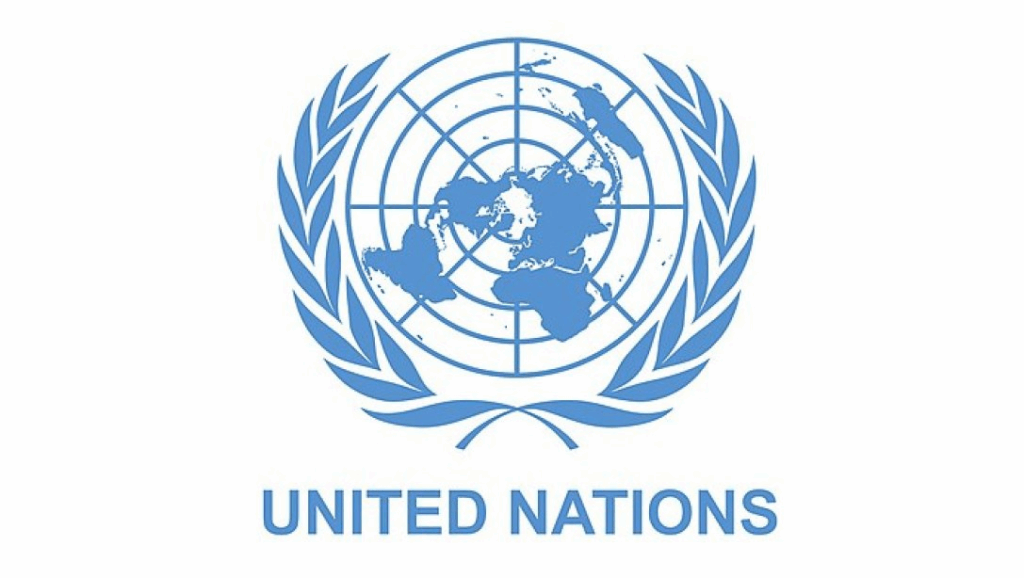
Concluding Thoughts
The Research Associate role at UNU-EHS/FAST is a compelling opportunity for an early-career researcher with strong quantitative skills, an interdisciplinary mindset, fluency in English and German, and an interest in urban sustainability, risk governance and applied research. It offers not just a job but a platform to bridge research, policy and international engagement.
Working at UNU means contributing to an institution whose mission is global, normative and forward-looking. The role’s emphasis on urban transformation, risk governance, spatial indices and interdisciplinary frameworks aligns with pressing global challenges – and positions the candidate to make a meaningful contribution.
That said, the role is demanding. The combination of research, quantitative methods, outreach, funding strategy, and international collaboration requires a broad skill set and proactive attitude. The PSA contract status and local recruitment terms mean the candidate should be realistic about the context, but also strategic about potential future career trajectories.
For any candidate seriously considering this role, I would recommend spending time studying recent publications from UNU-EHS and the FAST division (for instance, their work on urban resilience, city transformation, governance models). Being able to reference these in your cover letter and interview will demonstrate not just that you meet the requirements but that you are genuinely engaged with the institute’s agenda.
APPLY ON OFFICIAL WEBSITE
For More Latest Opportunities Join Us:
